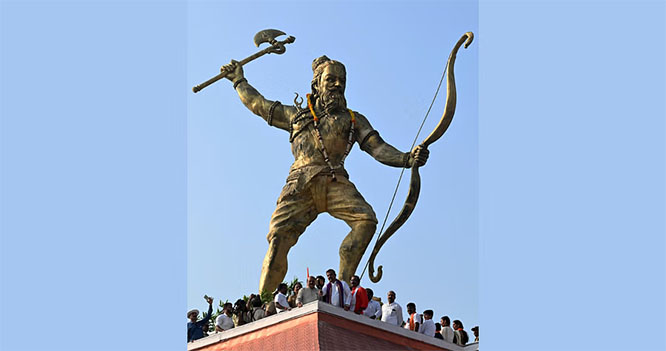
New Delhi: The Supreme Court today closed proceedings against Karnataka High Court Judge Justice Vedavyasachar Srishananda, following his public apology for controversial comments made during court sessions. Chief Justice of India DY Chandrachud, leading a five-judge bench, stated that the decision was made in the interest of justice and the dignity of the judiciary.
Justice Srishananda during a recent court hearing. Justice Srishananda, while addressing a landlord-tenant dispute, referred to a Muslim-majority area in Bengaluru as "Pakistan" and made a misogynistic comment involving a woman lawyer. His comments, which went viral on social media, prompted the Supreme Court to seek a report from the Karnataka High Court, which was submitted shortly after the incident.
"No one can call any part of territory of India as 'Pakistan'," Chief Justice Chandrachud said. "It is fundamentally against the territorial integrity of the nation. The answer to sunlight is more sunlight and not to suppress what happens in court. The answer is not to close it down."
The Supreme Court had taken up the case on its own and had sought a report from the Karnataka High Court over the controversial remarks. A five-judge bench led by CJI Chandrachud, along with Justices S Khanna, B R Gavai, S Kant, and H Roy, had on September 20 expressed the need for establishing clear guidelines for constitutional court judges regarding their remarks in court.
"Casual observational may indicate personal biases especially when perceived to be directed at a certain gender or community. Thus one must be wary of making patriarchal or misogynistic comments. We express our serious concern about observations on a certain gender or a community and such observations are liable to be construed in a negative light. We hope and trust that the responsibilities entrusted to all stakeholders are discharged without bias and caution," CJI Chandrachud said today.
The Supreme Court bench said that when social media plays an active role in monitoring and amplifying courtroom proceedings, there is an urgency to ensure judicial commentary aligns with the decorum expected from courts of law.
Videos of Justice Srishanananda were viral on social media.
In one video, he refers to a Muslim-dominated locality in Bengaluru as "Pakistan" and in another video he was seen making objectionable comments against a woman lawyer. In the second incident, Justice Srishanananda can be heard telling the woman lawyer that she seemed to know a lot about the "opposition party", so much so that she might be able to reveal the colour of their undergarments.






Comments
Add new comment